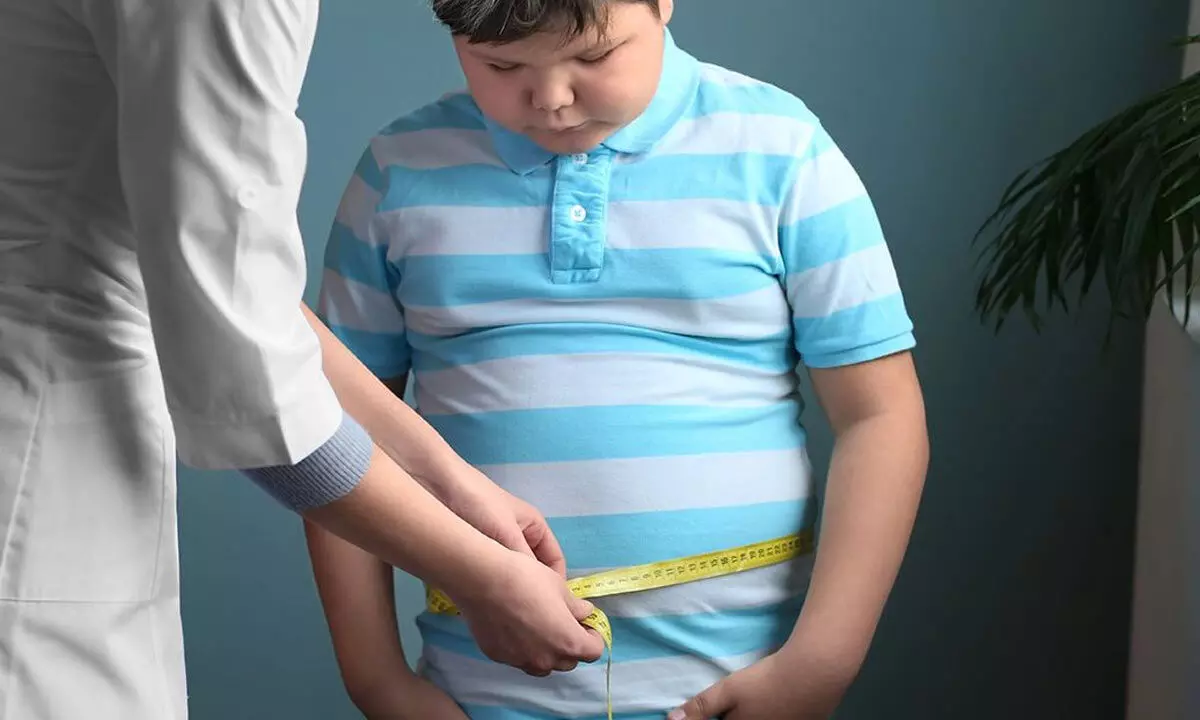Understanding the factors leading to childhood obesity

Understanding the factors leading to childhood obesity
There are certain physical complications of childhood obesity which include type 2 diabetes, high cholesterol, high blood pressure, joint pain, fatty liver
There are certain physical complications of childhood obesity which include type 2 diabetes, high cholesterol, high blood pressure, joint pain, fatty liver. As a parent, it is very important to take special care of your child who has obesity as he/she may experience teasing or bullying by their peers. This can result in a loss of self-esteem and an increased risk of depression and anxiety.
Childhood obesity is a serious medical condition that affects children and adolescents where the child is significantly overweight for his or her age and height. It is a very common condition affecting more than 10 million cases per year in India. Lack of physical activities and intake of excessive calories from food and drinks are the main contributors to childhood obesity. As parents, we tend to give our child whatever he/she seeks starting from drink to junk food. Food and drinks are the main contributors to this. However, genetic and hormonal factors also play a role.
Not only the children who are obese are likely to suffer from social isolation, depression, and lower self-esteem, they are at higher risk for having other chronic health conditions and diseases, such as asthma, sleep apnea, bone and joint problems, and type 2 diabetes.
Risk factors of becoming overweight
Food habits
Intake of high-calorie foods, such as fast foods, preserved food can cause children to gain weight. High sugar added food like chocolates, desserts, aerated beverages also leads to weight gain.
Lack of exercise
Children should get involved in some physical activities to burn calories. Watching television or playing video games, also contributes to the problem.
Family history
If the family has a history of overweight or obesity, he or she may be more likely to put on weight. This happens as such families always take high-calorie foods and physical activity isn't encouraged.
Psychological factors
Personal, and family stress can increase children risk of obesity. Some children keep on hogging food to deal with emotions, such as stress, or to fight boredom.
Socioeconomic factors
People sometimes prefer frozen meals, added preservatives, cookies which don't spoil quickly which further leads to weight gain.
Medications
It is always advisable to seek doctor's consultation while giving any medicine to children as few drugs can increase the risk of developing obesity.
· There are certain physical complications of childhood obesity which include type 2 diabetes, high cholesterol, high blood pressure, joint pain, fatty liver. As a parent, it is very important to take special care of your child who has obesity as he/she may experience teasing or bullying by their peers. This can result in a loss of self-esteem and an increased risk of depression and anxiety.
Prevention Healthy diet
Make healthy eating and regular physical activity a family affair. Drinking plenty of water and fruits is mandatory.
Homemade food
Always prioritise home food which includes air-popped popcorn without butter, fruits with low-fat yogurt, baby carrots with hummus, or whole-grain cereal with low-fat milk.
Sleep
Ensure your child get enough sleep. Some studies indicate that too little sleep may increase the risk of obesity. Sleep deprivation can cause hormonal imbalances that lead to increased appetite.
Doctor check-ups
Visit a doctor is advisable once a year. During this visit, the doctor measures your child's height and weight and calculates his or her BMI. A significant increase in BMI percentile rank indicates the child is at risk of becoming overweight.
(The writer is the Consultant - Paediatrics & Paediatric Intensive Care, Aster CMI Hospital)








